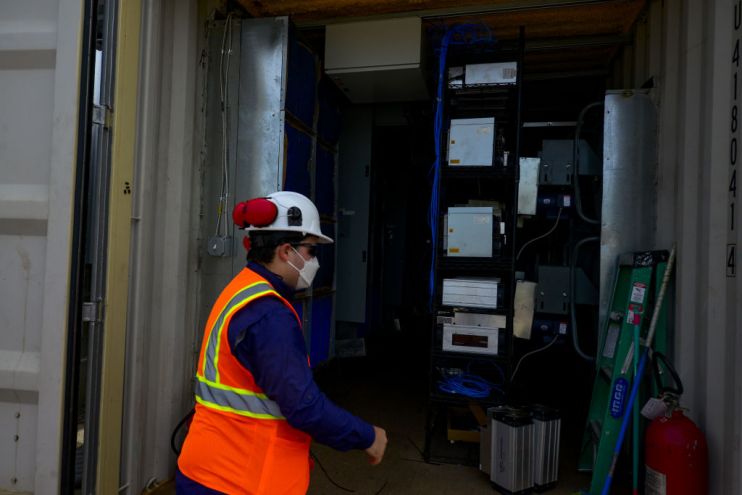Crypto mining under fire as EU regulator sounds alarm

In a sign that crypto mining is once again under the hawkish gaze of global regulators the vice-chair of Europe’s securities and markets authority has called for energy intensive mining practices to be banned.
Erik Thedéen yesterday warned that crypto mining poses a risk to the international community’s ability to meet climate change commitments outlined in the Paris agreement, in comments to the FT. Thedeen said that regulators across Europe should consider a ban on “proof-of-work” mining, a highly energy intensive method for mining crypto which underpins the world’s two largest crypto projects, Bitcoin and Ethereum.
“The solution is to ban proof-of-work,” Thedéen told the FT. “Proof-of-stake has a significantly lower energy profile.”
Under the proof-of-work consensus mechanism miners use powerful computers to try and solve complex algorithmic puzzles in order to verify transactions and create new coins. The method is highly energy intensive compared to proof-of-stake which selects a group of miners at random to sign off transactions.
Cambridge’s Bitcoin energy consumption index estimates that the mining process uses 134.8TWh of energy per year, more energy than entire countries including Norway, Sweden and the Ukraine. By contrast, Ethereum has estimated that its planned transition to a proof-of-stake network will cut energy usage by 99.95 per cent.
“We need to have a discussion about shifting the industry to a more efficient technology,” said Thedéen,who stressed that he is not advocating an outright ban on crypto assets.
“The financial industry and a lot of large institutions are now active in cryptocurrency markets and they have [environmental, social and governance] responsibilities,” he added.
While concerns about the energy usage of the Bitcoin network are well publicised, proponents argue that crypto mining could speed up the development of renewable energy sources.
“The promise of Bitcoin mining is that it’s going to accelerate the transition to a renewable energy infrastructure,” said Alex Brammer, the vice president of business development for US-based crypto mining pool Luxor Mining.
“Increasingly, you’re seeing miners that are co-locating next to nuclear, hydro, hydroelectric, geothermal [energy sources],” Brammer added, noting that the profitability of Bitcoin mining could help to “economically incentivise” the rapid development of efficient renewable energy generation.
Brammer added that record gas and electricity prices are further incentivising mining companies to reduce reliance on fossil fuel in favour of greener, cheaper energy sources.
Such arguments have done little to assuage the concerns of regulators about the environmental impact of crypto currency mining which accounts for 0.6 per cent of global annual energy usage.
China vowed to ban crypto currency mining and trading in May last year, citing environmental concerns, which caused Bitcoin to shed 50 per cent of its value compared to its previous peak.
While the mining network has migrated to more crypto friendly jurisdictions in the intervening months miners have frequently faced an uneasy relationship with law enforcement. In Kyrgyzstan crypto miners have faced arrest over accusations they are contributing to the country’s energy shortage which caused rolling blackouts last year.
Thedéen said that in Sweden, his native country, Bitcoin has become a national issue because of concerns that the mining process runs down renewable energy supplies.
In comments to City A.M. fintech investor Viktor Prokopenya called for a rapid transition to a sustainable blockchain ecosystem in order to pacify regulators.
“The time to act is now,” said Prokopenya addressing the European regulator’s comments. “My hope is that increased pressure from policy-makers such as Thedéen and MEPs will lead to the developers of bitcoin and ethereum agreeing to switch to proof of stake faster than initially planned.”
Read more: Could Bitcoin be powered by volcanoes?